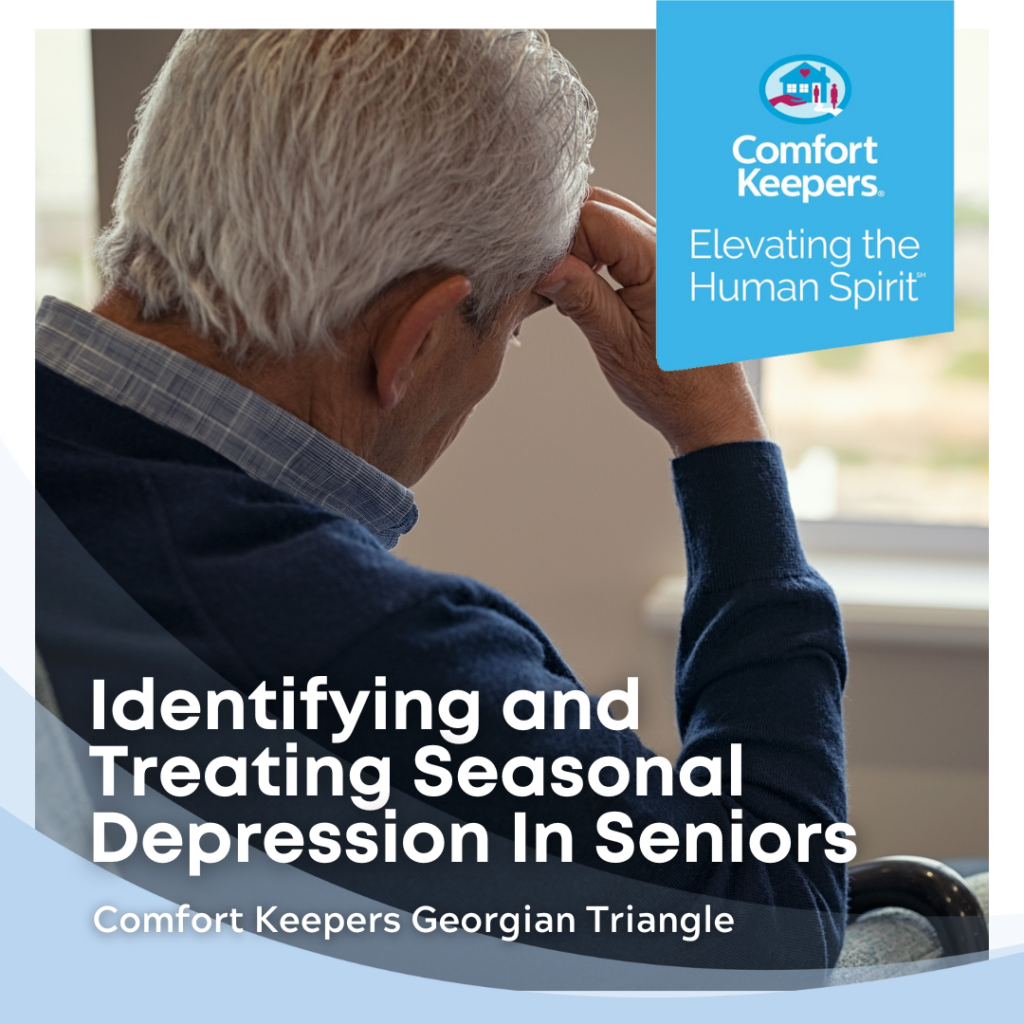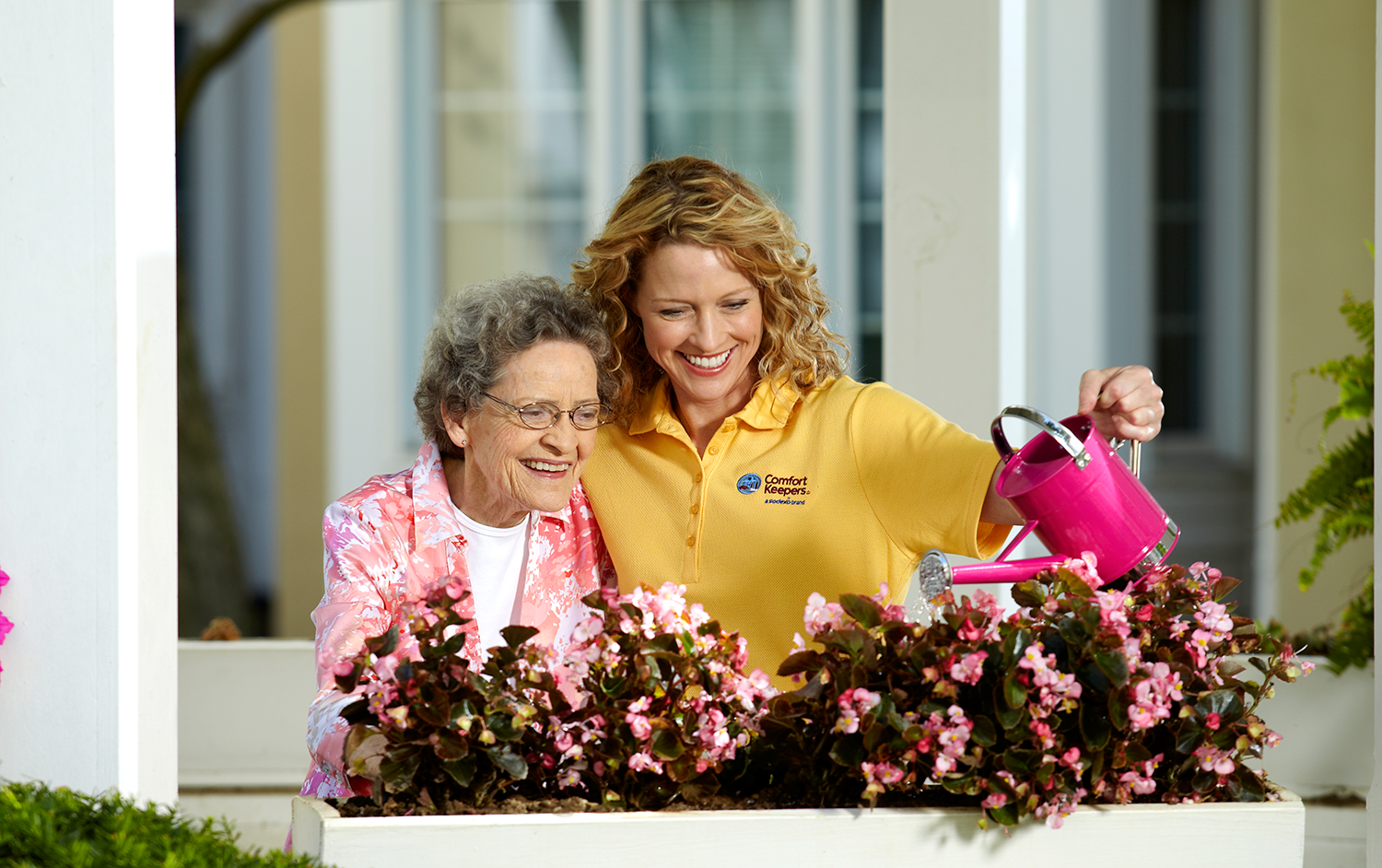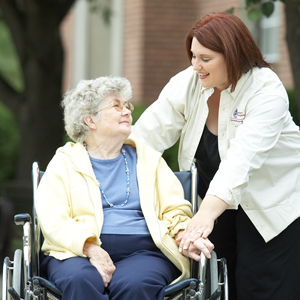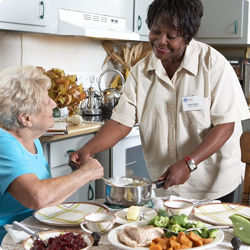Identifying and Treating Seasonal Depression In Seniors
Senior Health and Wellbeing | November 11, 2022

Seasonal Depression in Seniors
What is Seasonal Depression in Seniors? Winter Blues. Cabin Fever. SAD. Seasonal Affective Disorder has many names. Some people mistakenly write off SAD as a simple case of “climbing the walls,” but as a recognized type of clinical depression, SAD requires professional diagnosis and attention, as the Canadian Mental Health Association advises.
As days grow shorter, and daylight becomes scarce in late fall and winter, 4 to 6 percent of Canadians experience a form of depression called winter-onset Seasonal Affective Disorder *(SAD). Another 10 to 20 percent have milder cases.
How Common Is Seasonal Depression or Seasonal Affective Disorder (SAD)?
Although SAD is more common among younger adults (75 percent of SAD patients are women, most in their 20s, 30s and 40s), it also affects seniors. And seniors diagnosed with other forms of depression may have symptoms aggravated by the isolating effect of forbidding winter weather. Treatment for SAD and other forms of depression is especially critical for older adults, who are at greater risk of suicide than the rest of the Canadian population, according to the Public Health Agency for Canada.
Signs Of Seasonal Depression
While Canadian seniors make up 13 percent of the population they account for 16 percent of all suicides—and white men over 85 are at six times greater risk of suicide than other population segments. Despite this, only 10 percent of seniors suffering from depression receive therapy.
Those with SAD exhibit many of the common signs of depression—sadness, anxiety, irritability, social withdrawal, loss of interest in normal activities, and inability to concentrate. Other symptoms of winter-onset SAD, which usually begin in October or November and subside in March or April, include:
- Craving for carbohydrates, overeating and weight gain
- Fatigue and loss of energy
- Oversleeping
- Increased sensitivity to social rejection
Symptoms vary from one person to another as does the degree of depression—for most individuals, mild to moderate, and for a few, severe to the point of suicidal thoughts.
Winter-Onset SAD is more common at higher latitudes as it is closely associated with a decrease in daylight. It is thought that lessened exposure to sunlight alters the biological clock that regulates mood, sleep, and hormones. Another explanation for SAD is that the neurotransmitters, the brain chemicals that relay information between the nerves, may be altered in the brains of persons with SAD.
Managing Seasonal Affective Disorder
Light therapy, using a specially designed light box or light visor, is a common treatment for correcting the imbalances in persons with SAD. This therapy often is prescribed in combination with antidepressants and behavioral therapy.
Other means to help seniors elevate mood and fend off the effects of winter and depression include:
- Open curtains and blinds to allow in as much daylight as possible. Sitting near a window can increase daylight’s positive
- As safety permits, spend time outdoors every day. Even on cloudy days the effect of daylight can be beneficial. For the added benefit of companionship, as well as safety, a family or professional caregiver may need to accompany a senior.
- Eat a well-balanced diet that provides recommended amounts of vitamins and minerals to maintain energy. Limit consumption of starchy and sweet foods.
- Get physical activity 30 minutes a day, three times a week. Again, a family or professional caregiver can help seniors achieve this safely with the added, healthful benefit of companionship.
- Stay involved with hobbies, church and social activities and friends to prevent feelings of isolation that winter can bring.
A Harvard University study found that therapies that incorporate activity for seniors have proven effective in treating depression. Studies also have shown the benefits of physical activity in treating depression.
*A much smaller portion of the population experiences SAD during hot, humid summer months. Fewer yet encounter SAD in both winter and summer.
Comfort Keepers® Georgian Triangle Can Help
If you are concerned about the health and well-being of your aging loved ones we can help. Comfort Keepers®’s trained caregivers help provide senior clients with the highest quality of life possible to keep them happy and healthy at home. Our Interactive Caregiving™ provides a system of care that addresses safety, nutrition, mind, body, and activities of daily living (ADLs).
What’s more, our trained caregivers are selected with one specific quality in mind: empathy. Care that is empathetic is care that starts in the heart, and it allows us to meet our client’s exact needs. Learn more about our unique service offering Dementia Care and Palliative Care by contacting the Comfort Keepers Georgian Triangle office.
Comfort Keepers Georgian Triangle, is pleased to announce that we are a recipient of Accreditation Canada’s, Accreditation Primer Award. Accreditation is an intensive process in which an organization’s processes, policies, and procedures are examined by industry experts against a set of quality standards. To achieve accredited status, Comfort Keepers offices met or exceeded the rigorous standards for Home Care companies, as defined by Accreditation Canada.
If you live in the Collingwood, Midland, Owen Sound area, contact Comfort Keepers at (705) 293-5553, or email us at georgiantriangle@comfortkeepers.ca. Comfort Keepers Georgian Triangle is here to help you and your loved ones get the best care possible.
Individualized Home Care Options
Long-Term Home Care, 24 Hour Home Care & Short Term Care Options Customized for You







